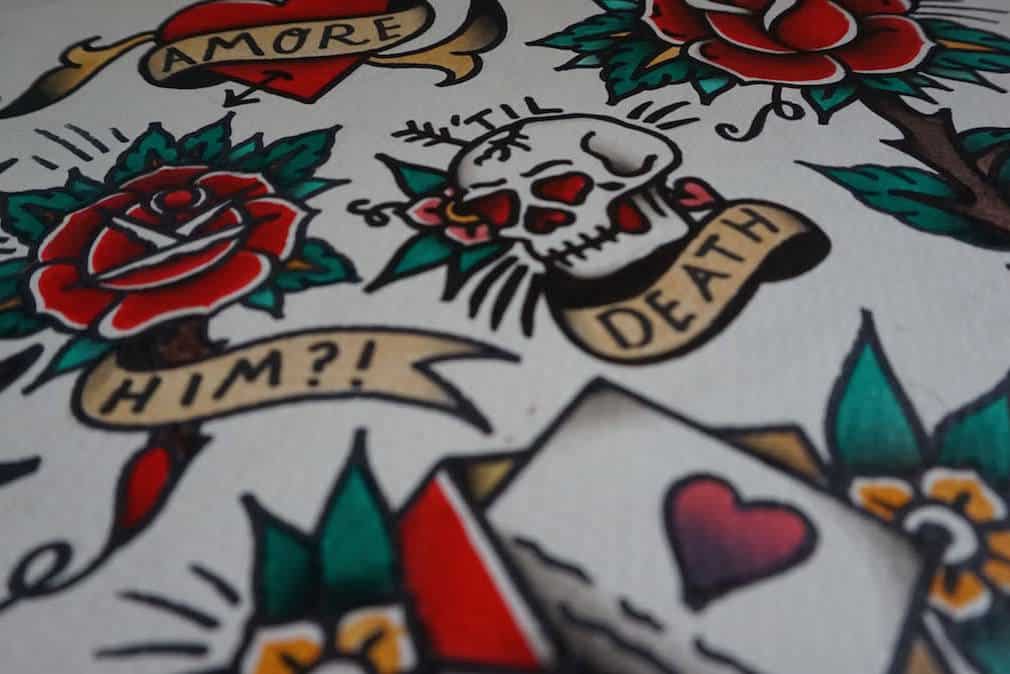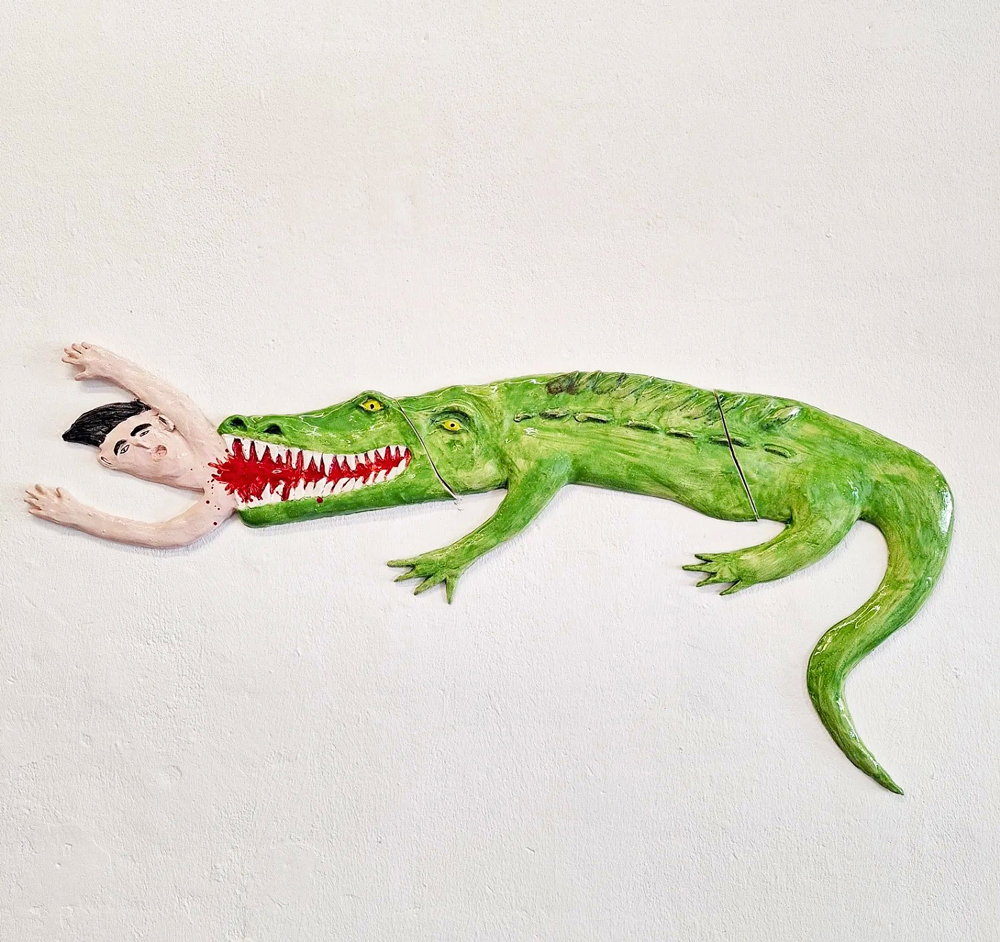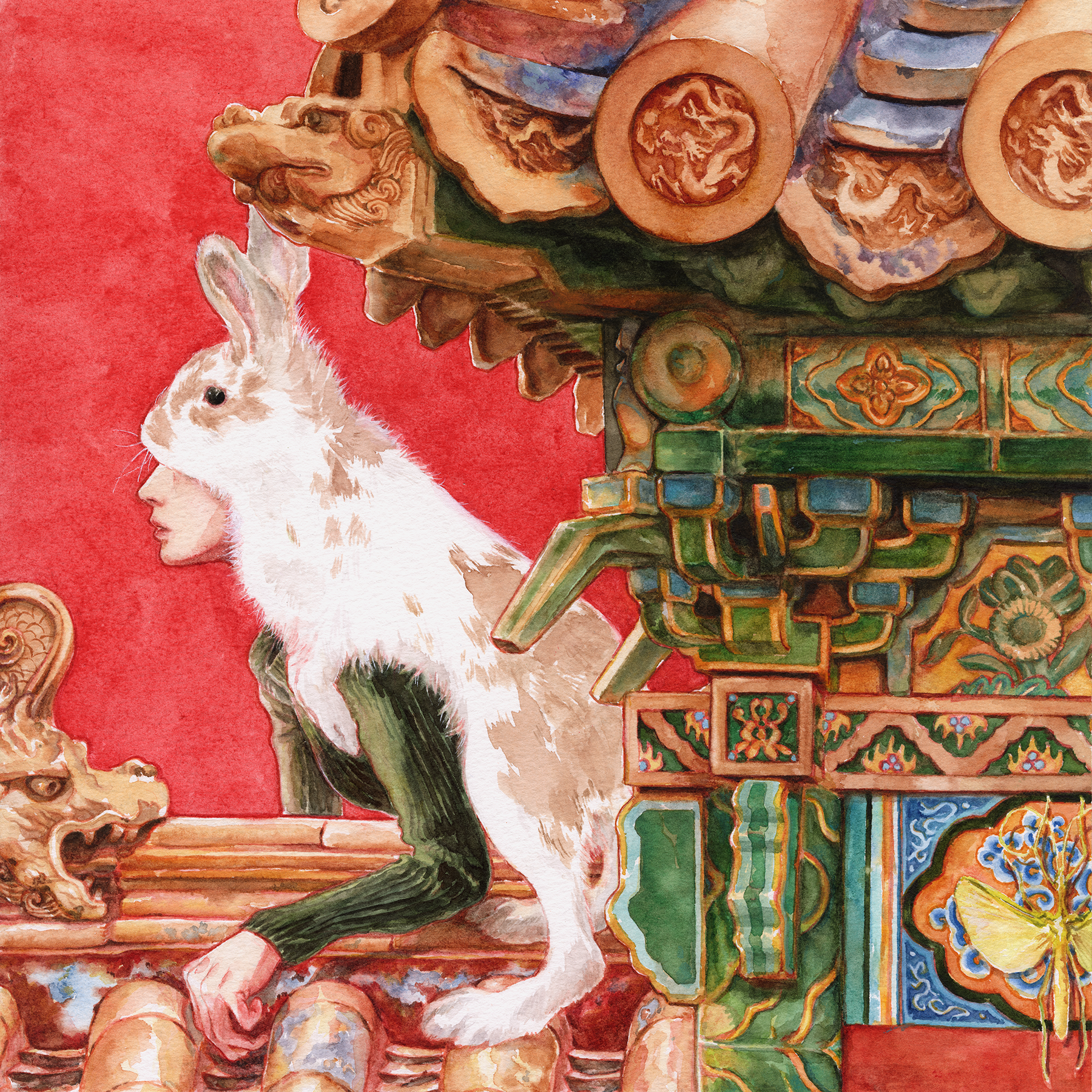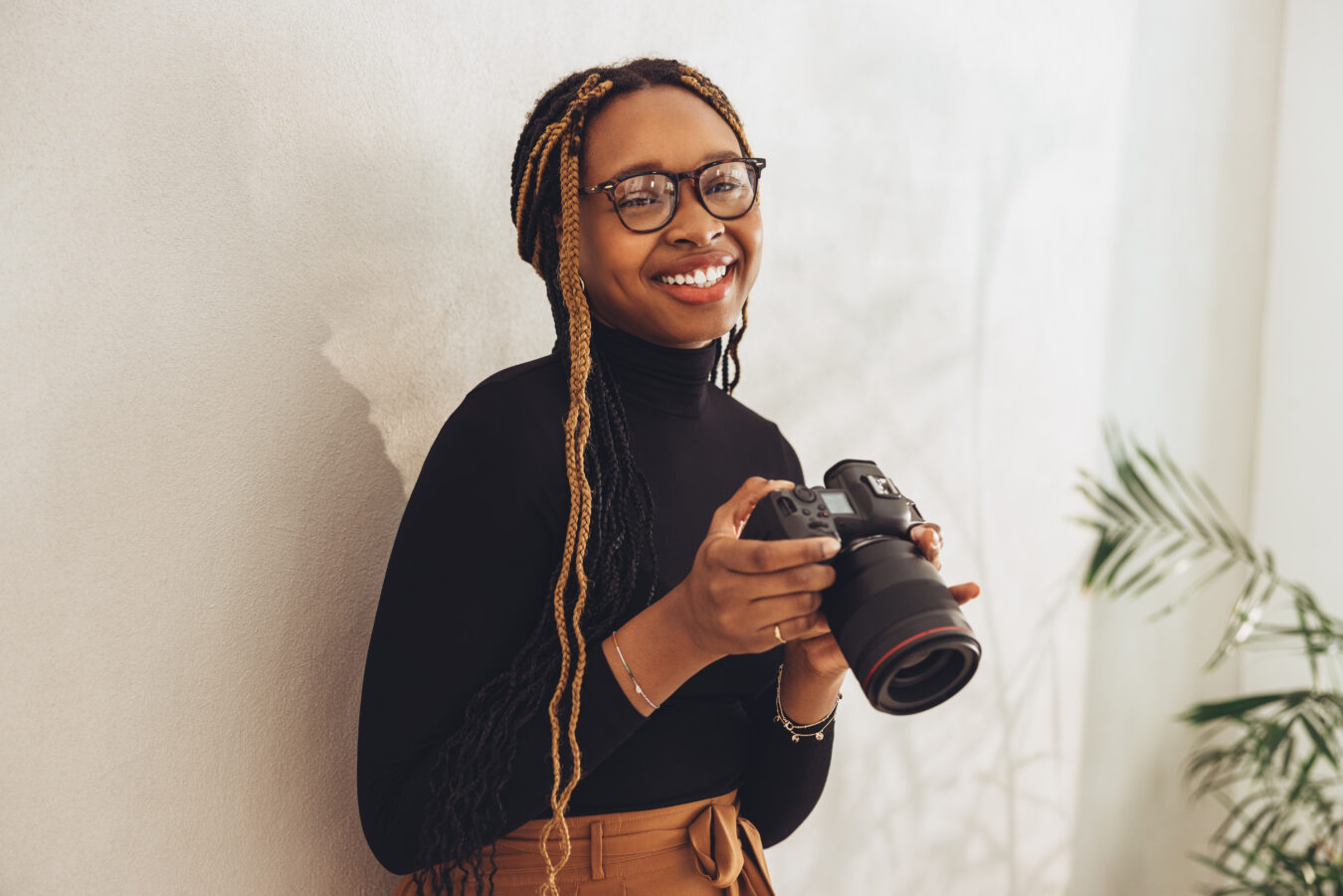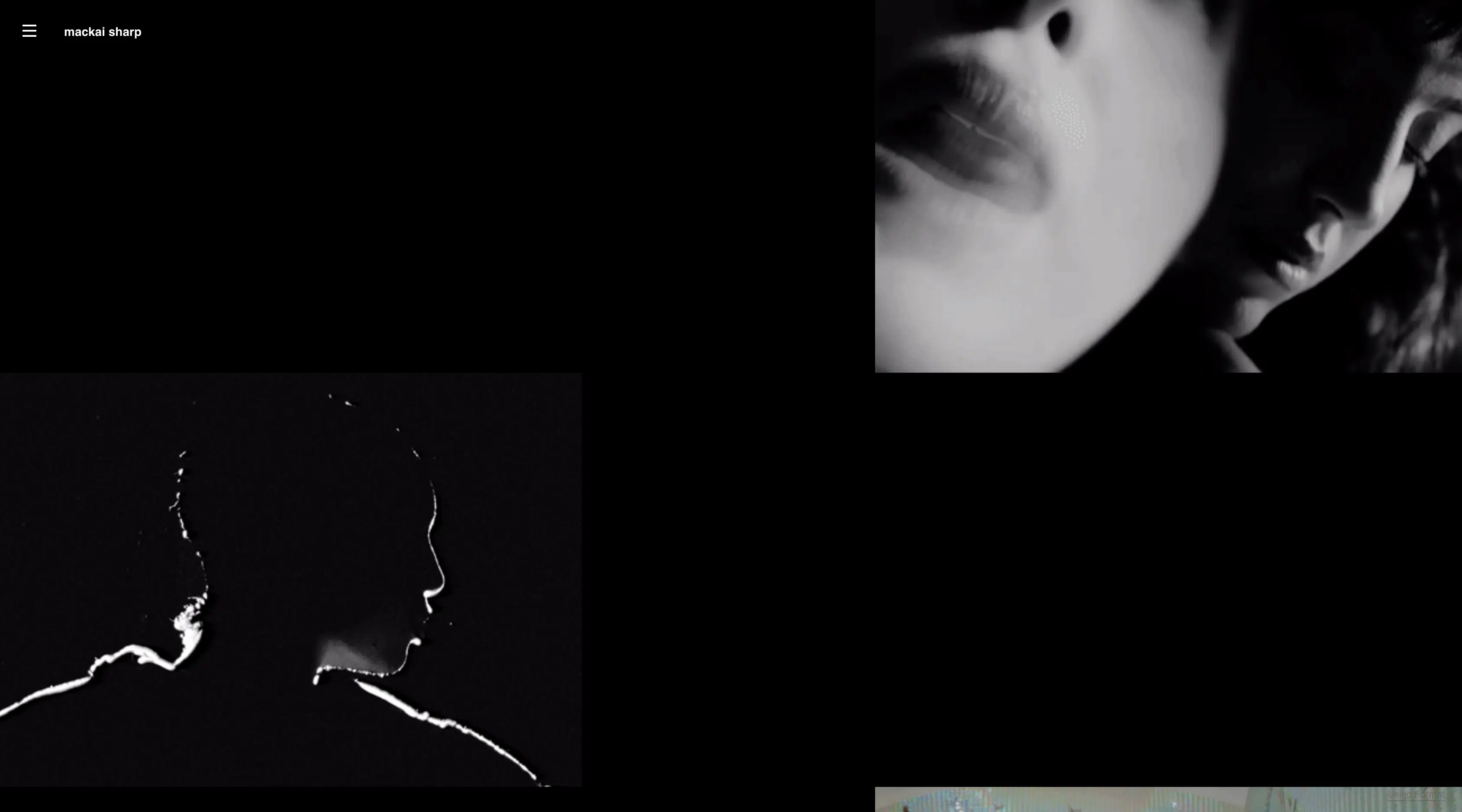Wondering how to become a tattoo artist? It takes hard work, but if you can draw and have people skills, becoming a tattoo artist could be the perfect career for you. But first, you probably have some burning questions about what you need to do to learn to tattoo and become a tattoo artist. And we have answers!
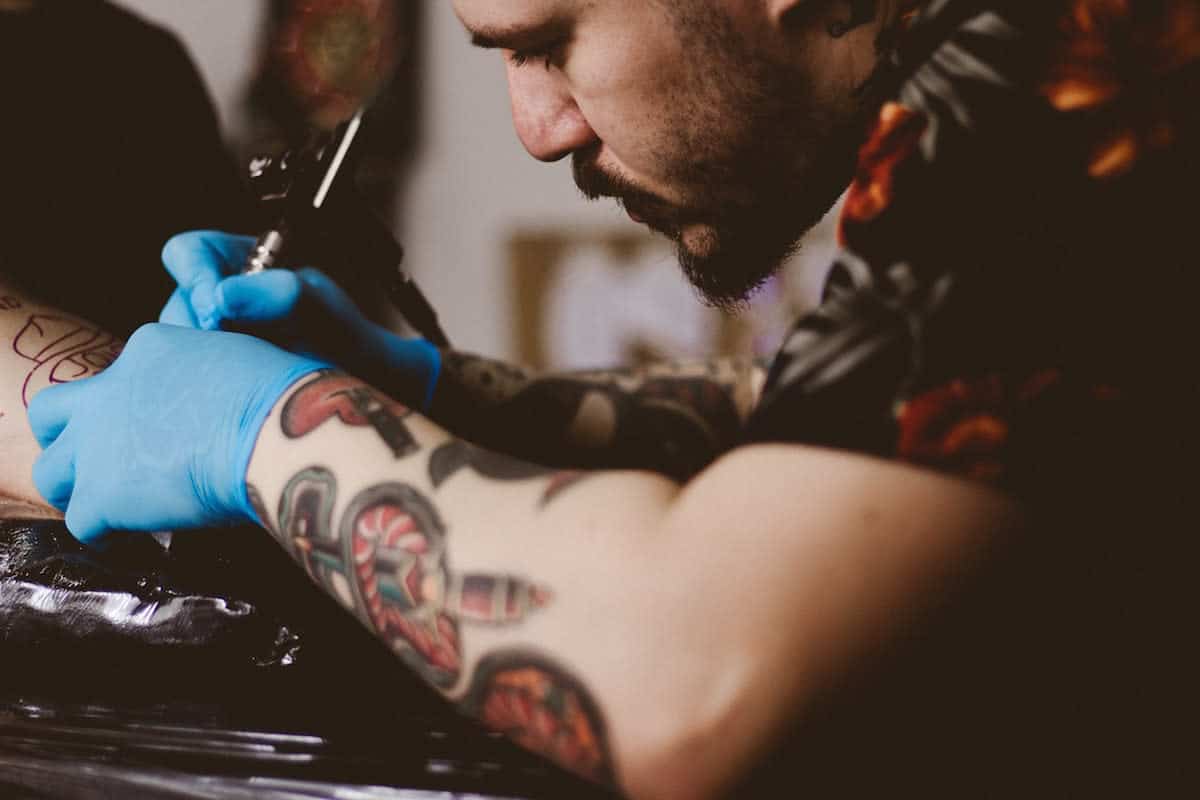
How Long Does it Take to Become a Tattoo Artist?
The amount of time it takes for you to become a tattoo artist can vary greatly depending on a few factors, such as tattoo artist requirements in your location, which we’ll discuss in more detail later on. The Alliance of Professional Tattooists recommend that aspiring tattoo artists complete an apprenticeship of at least three years, so if you want to become a tattoo artist, you need to be in it for the long haul. You can expect to apprentice for at least six months before you’re even allowed to pick up a needle of your own, and eight months before you can tattoo a client, even for free.
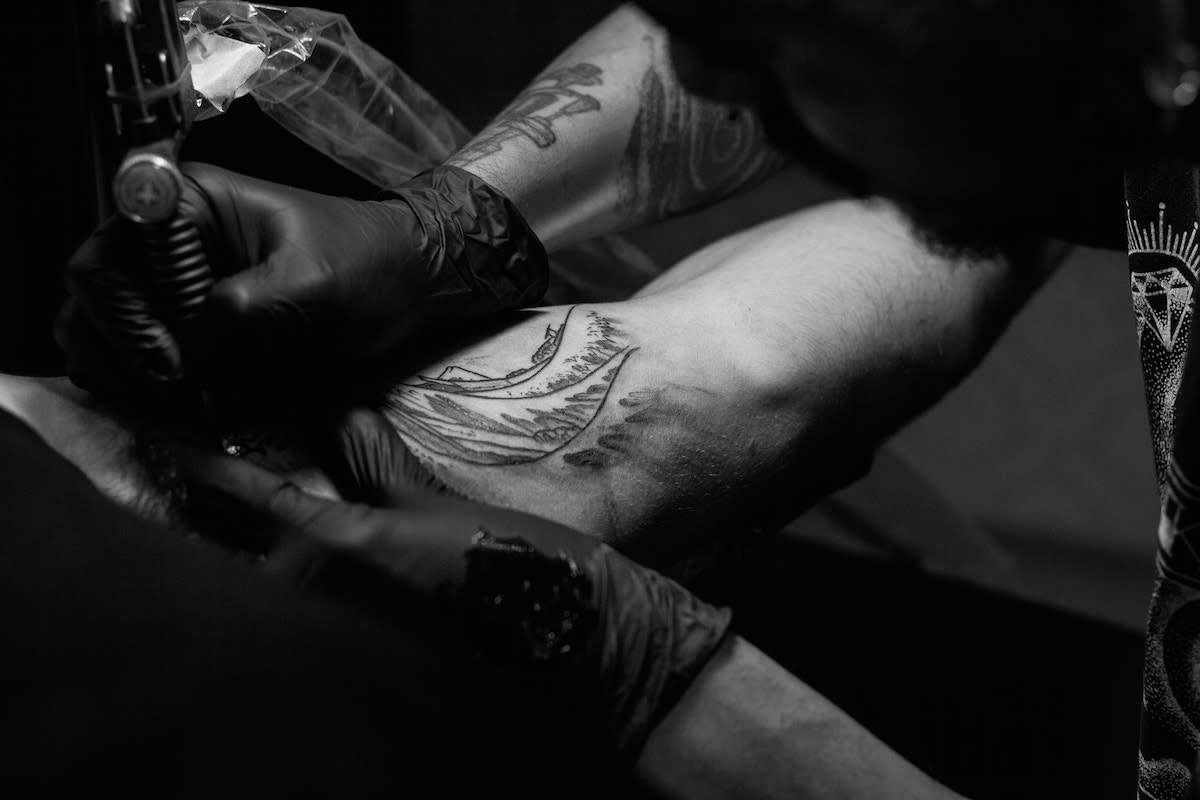
What are the Tattoo Artist Requirements?
It should come as no surprise that in order to become a tattoo artist, you need to have some basic artistic ability. You’ll need to curate a portfolio showcasing your best work, and demonstrating proficiency in a variety of styles and subjects. Next, you’ll complete an apprenticeship, working with a professional tattoo artist. Depending on where you live, you may need to take tattoo classes in order to receive the necessary tattoo artist license.
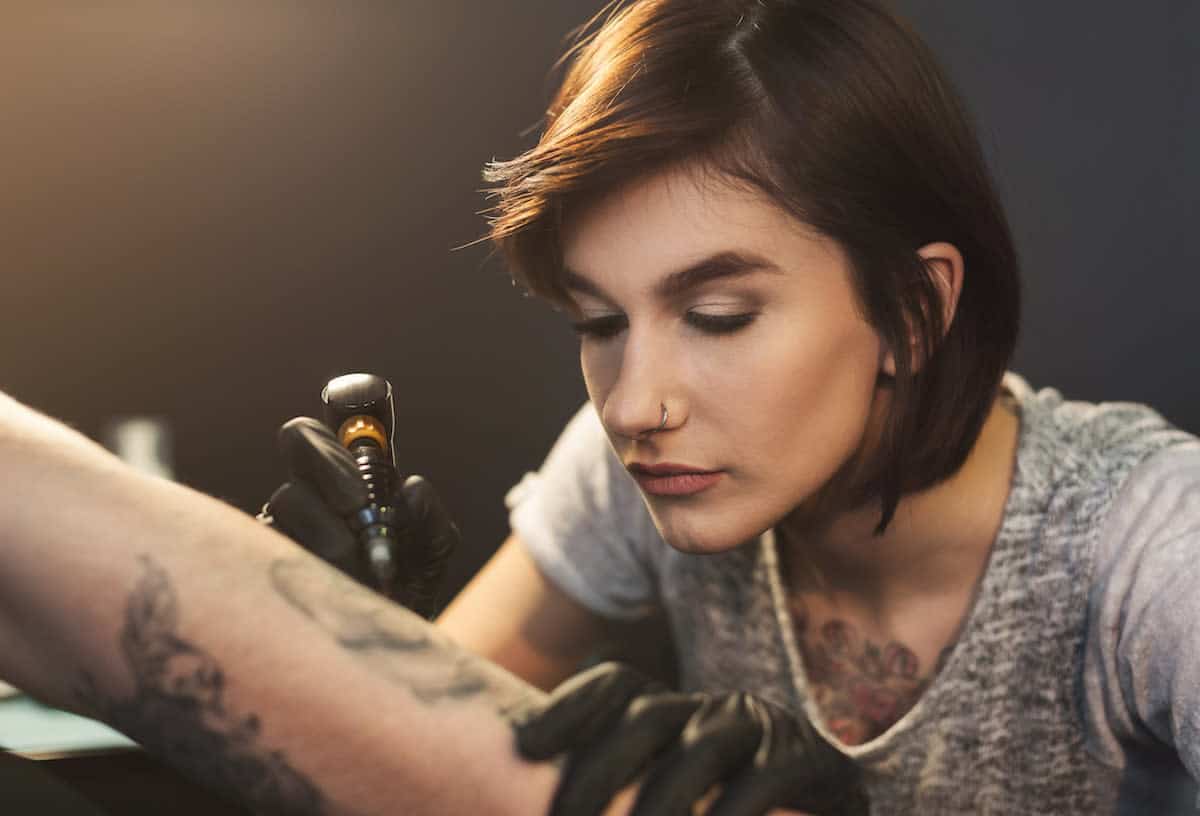
What Goes into a Basic Tattoo Kit?
A beginner’s tattoo kit should include the following:
- A tattoo machine for line work
- A tattoo machine for shading and color work
- A power source and foot pedal
- Tattoo needles in a variety of types and sizes
- Tattoo ink in a variety of colors (but you may want to buy a larger quantity of black ink, since it will be used most often)
- Rubber surgical gloves
- Additional parts for your tattoo machine
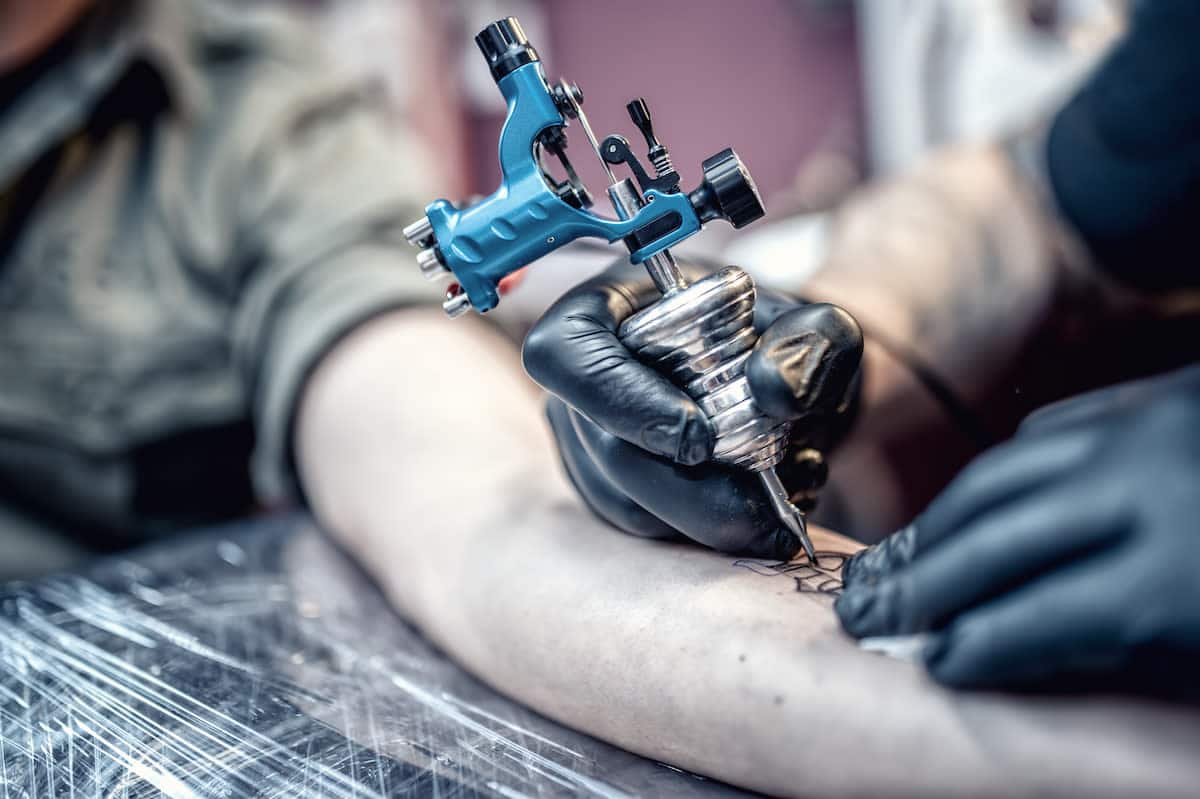
What Sort of Tattoo Machines and Tattoo Equipment Will I Need?
While buying a premade tattoo kit will be tempting, your tattoo equipment will likely be higher quality and longer lasting if you seek out each piece separately. There are many considerations for you to make before you go to purchase your tattoo equipment, beginning with deciding between a coil or rotary tattoo machine. A coil tattoo machine uses electromagnetic current to tap the tattoo needle into the skin, while a rotary tattoo machine uses a cyclical motion to insert the needle, creating a more fluid effect. There is also the option of using a pneumatic tattoo machine, which uses pressurized air to control the needle, but these are not as commonly used as the other two options.
If you’re feeling overwhelmed, don’t worry! In all likelihood you won’t need to purchase your tattoo equipment until you are partway through your tattoo apprenticeship, and at that point your mentor can advise you on exactly what you need to invest in.
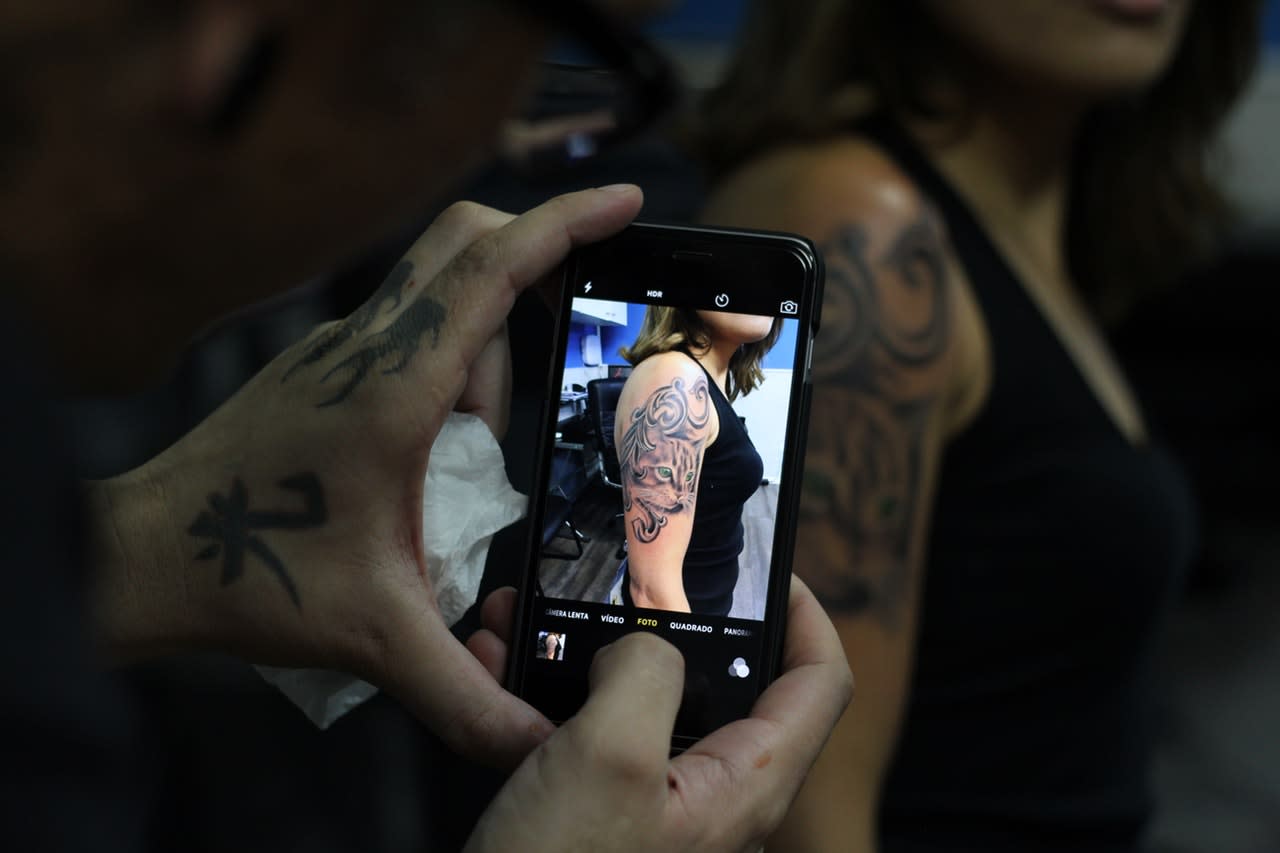
What Sort of Tattoo Artist Salary Can I Expect?
According to PayScale, the median annual tattoo artist salary is $42,000, but can range anywhere from $23,000 to $126,000. If you have relevant certifications or licensing as a tattoo artist, you may be able to charge a higher fee for your services, leading your annual salary to go up. If you build a great reputation or become Instagram-famous, you can also charge high fees as a guest tattoo artist at conferences or traveling abroad.

Are There Tattoo Artist Schools I Can Attend?
While tattoo schools do exist, most tattoo artists recommend focusing on your apprenticeship instead. However, the upside to enrolling in a tattoo school is that the apprenticeship process will likely be accelerated, and some tattoo artist schools offer guaranteed job offers after completing the program.
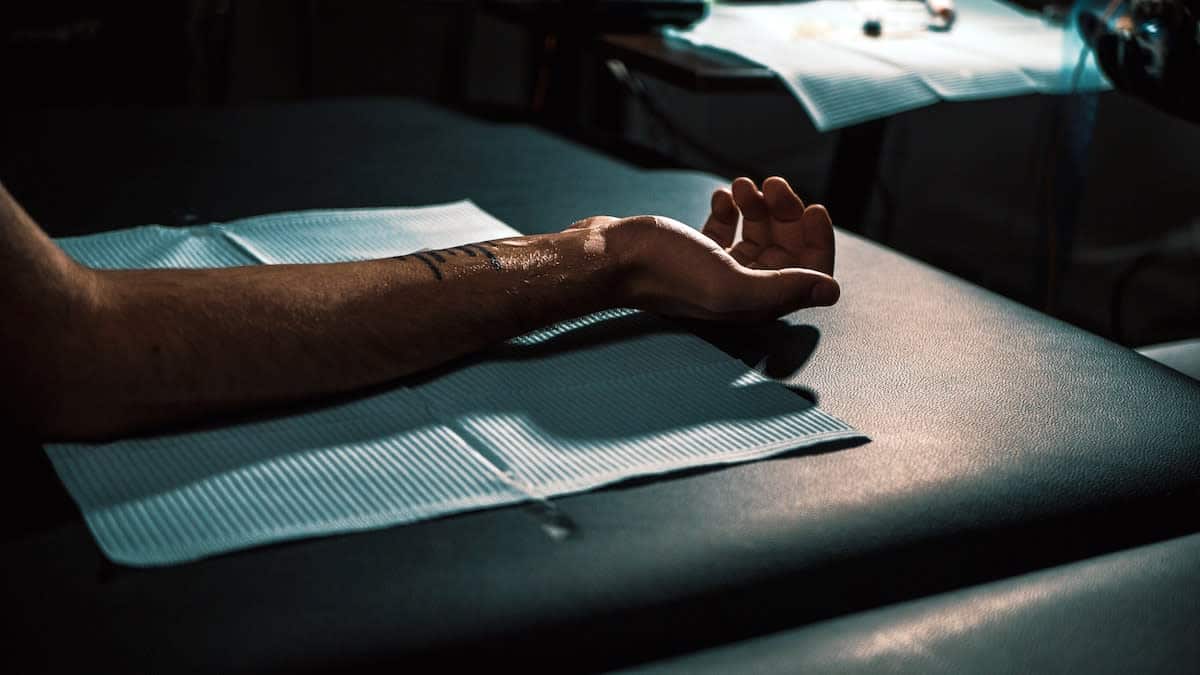
What About Tattoo Classes?
Some tattoo schools offer one-day introductory tattoo classes, for those who can’t wait to get their hands on a tattoo machine. Traditionally, though, the tattoo apprenticeship is a key part of learning to tattoo, and some tattoo artists feel that tattoo classes mean skipping ahead past an important part of the process. If you’re going to take a tattoo class, try to find one that provides you with a tattoo kit to use, so you don’t have to invest a bunch of money without knowing what you’re getting yourself into first.
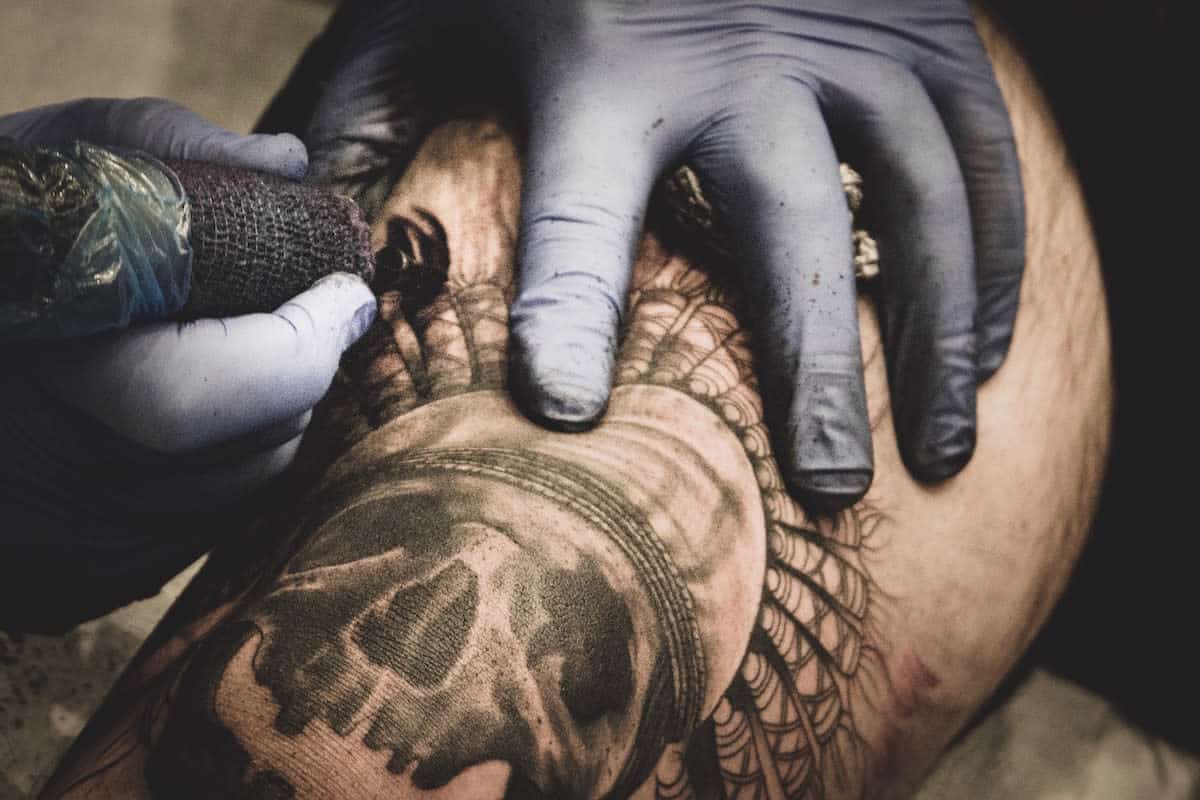
How Do I Get a Tattoo Artist Apprenticeship?
Before you start working as a tattoo artist, you’ll have to complete a tattoo artist apprenticeship. It’s unlikely that you will be paid during your apprenticeship, which can last anywhere from one to five years, so it would be wise to save up some money to get you through. You’ll have to work hard and do a lot of grunt work, but in exchange you’ll gain invaluable knowledge and experience. First, look for a certified tattoo artist whose work you admire, and who has a good professional reputation. If they’ve mentored tattoo artists before, even better. To make a good impression, go to the shop in person (at a time when it isn’t too busy), introduce yourself, and politely ask them to look at your tattoo portfolio. Tattoo artist apprenticeships can be quite competitive, so listen carefully to any feedback they give, and use that information to improve your portfolio and try again. If you can’t find any tattoo artists to mentor you in your location even after reworking your portfolio, you might want to consider relocating.
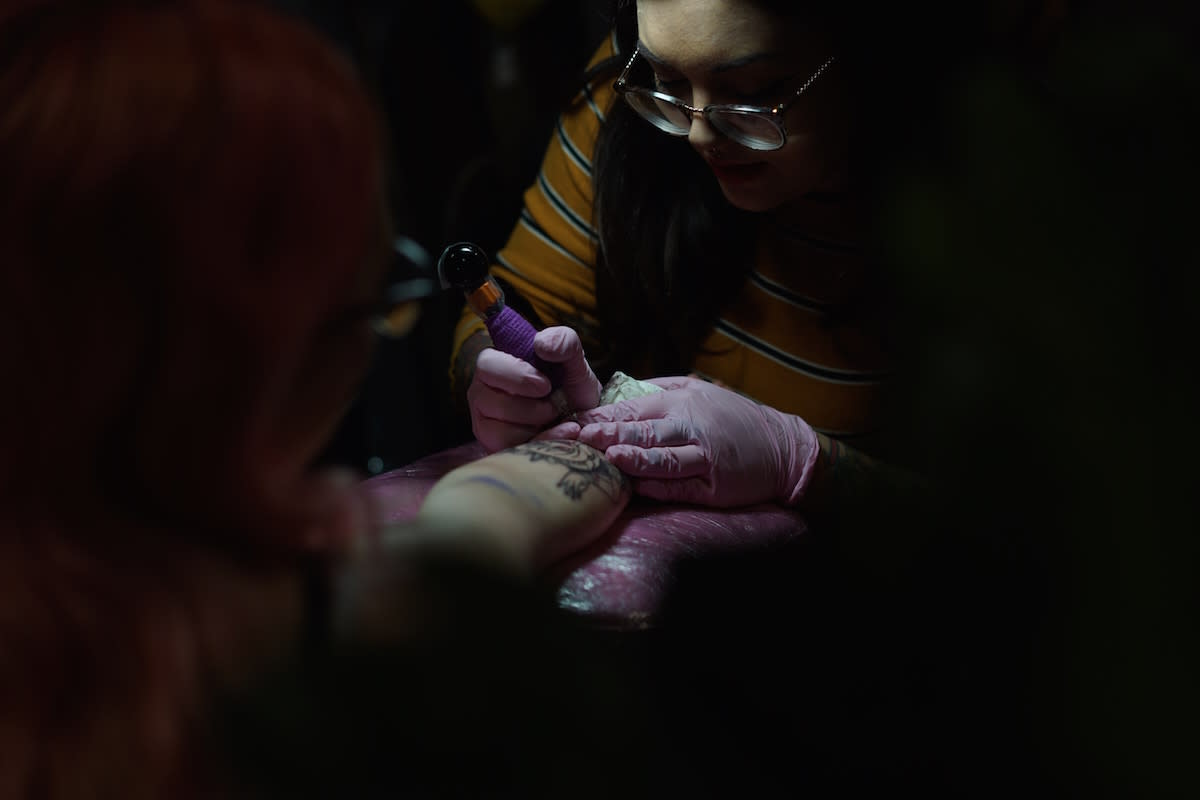
Do I Need a Tattoo License?
Licensing requirements for tattoo artists vary depending on where you live; they can include completing a certain number of apprenticeship hours, health and safety courses, and an exam. You could face legal action if you work as a tattoo artist without proper certification, so check your area’s requirements for tattoo licensing. Some locations may also require tattoo artists to complete regular continuing education courses, and licenses may need to be renewed every few years.
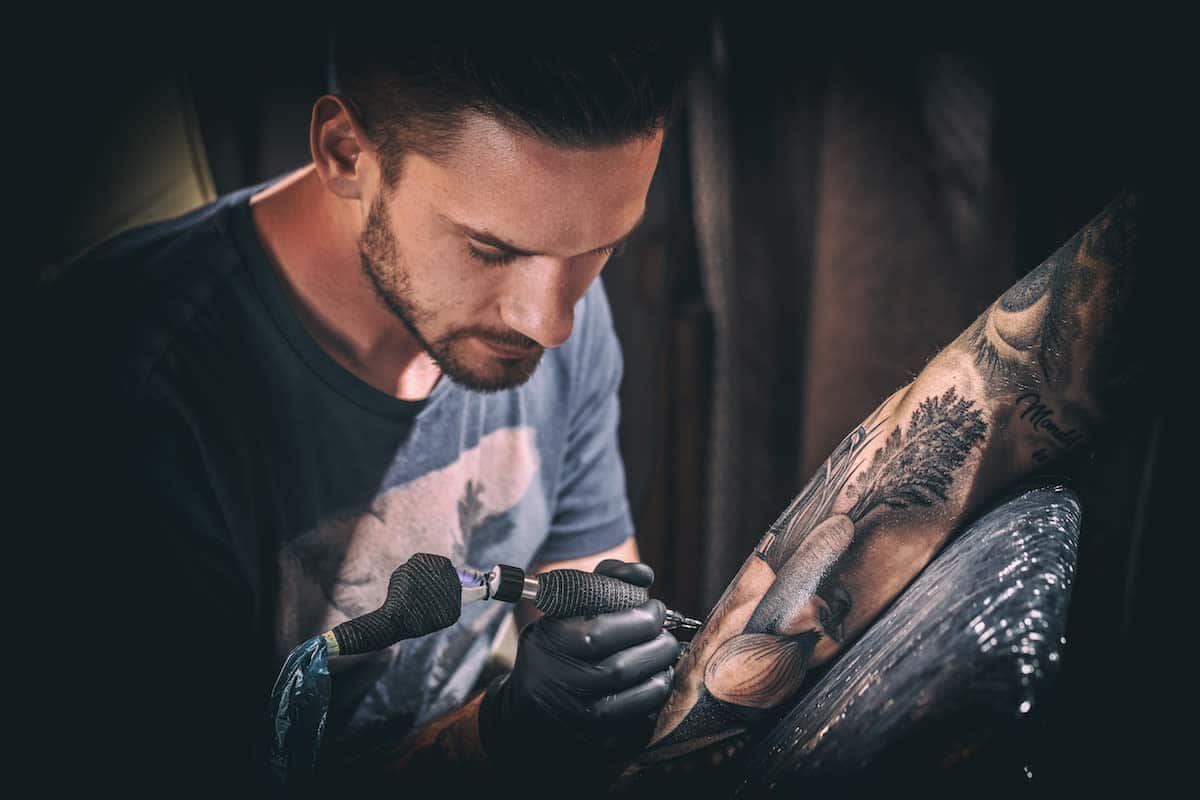
What’s the Tattoo Job Market Like?
The tattoo industry can be highly competitive, so it may be difficult to find a job as a tattoo artist right away. The US Bureau of Labor Statistics reported a median salary of $58,450 annually for artists including tattoo artists, and predicted a 2% increase in job openings from 2014 to 2024, which is below average. On the plus side, with tattoos becoming more mainstream in the last few years, a tattoo artist can gain popularity on social media leading to fans travelling long distances to work with their favorite artist. If you manage to gain a solid following on social media, you could also consider travelling to different places for a chunk of time to see clients who are unable to fly to you. Tattoo artists will typically work as independent contractors rather than salaried employees, with the tattoo shop taking a commission on each tattoo you complete. This means you probably won’t be eligible for employee benefits. The longer you spend in the industry, the easier it will be to find work as a tattoo artist: with a strong reputation and great online portfolio website, you can work anywhere in the world (providing you are licensed accordingly).
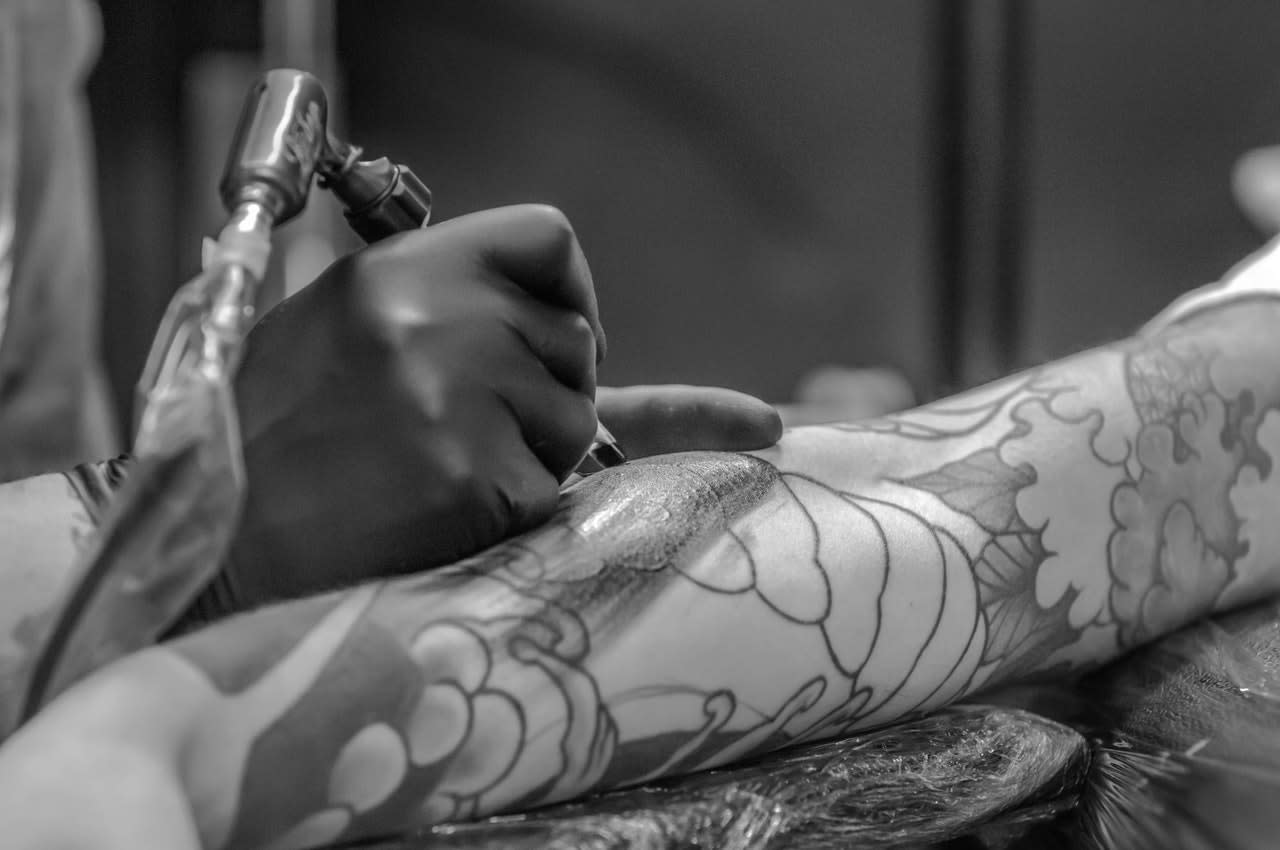
How Do I Put Together a Tattoo Artist Portfolio?
If you already know what type of tattoos you want to do, go ahead and start sketching out some of your ideas. But if you’re in need of some inspiration, start by checking out some tattoo artists to identify what type of tattoo art you’re drawn to. Once you have an idea of what you want to draw, the number-one thing you can do to become a good tattoo artist is to practice your drawing skills. Plus, you can actually make money off of your tattoo designs online using resources like Create My Tattoo, a great option to potentially pull in some cash before you’re ready to start tattooing.
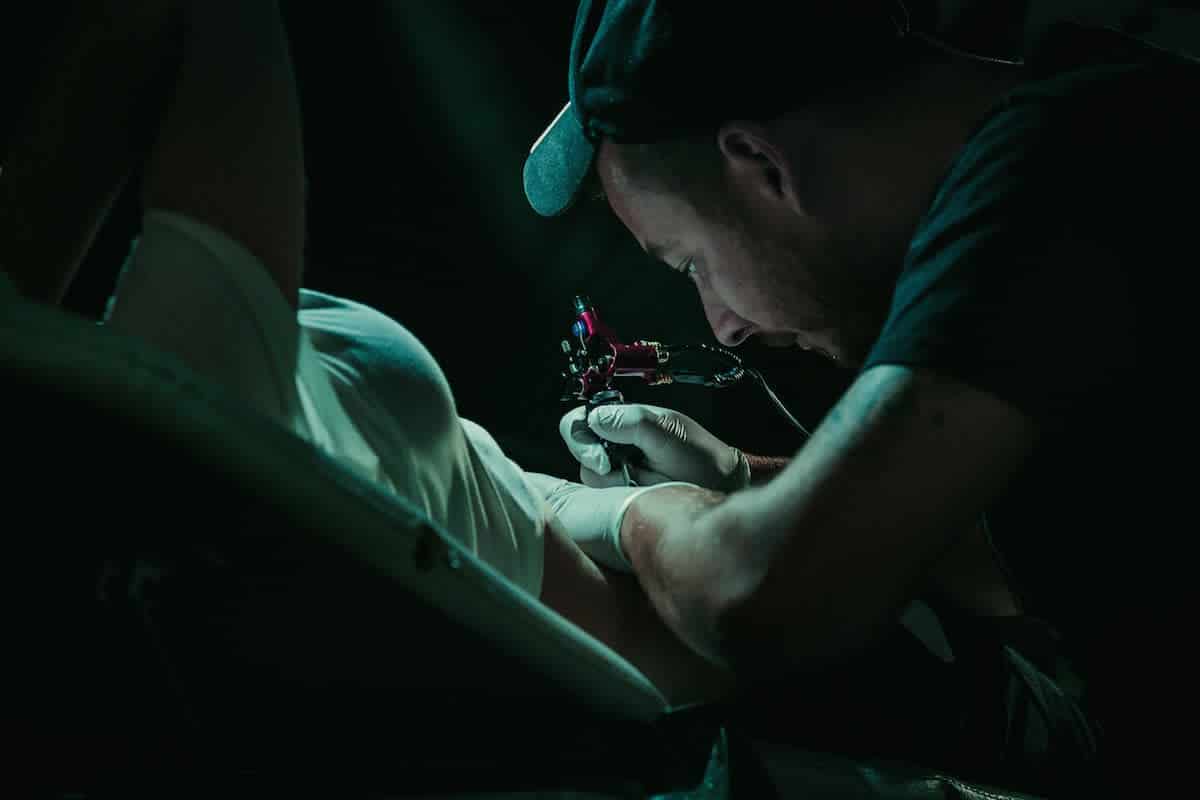
Once you’ve got some of your designs ready to go, it’s time to start building your tattoo artist portfolio. Use a website builder to create one in just minutes. This way, potential customers and employers can easily get a sense of the work you do. Go with an online portfolio that offers cool templates, to complement your work, and client proofing functionality, so clients can review commissioned designs right on your site. It’s also a good idea to look for an online portfolio that offers Instagram integration, so you can feature your best Insta snaps on your portfolio.

Can’t wait to see your ink!
Want to learn more about killing it online as a tattoo artist?
10 Social Media Marketing Secrets You Need to Get More Clients
Here’s How To Write An Amazing Instagram Bio In 10 Minutes
How Social Media is Changing Tattoo Art
